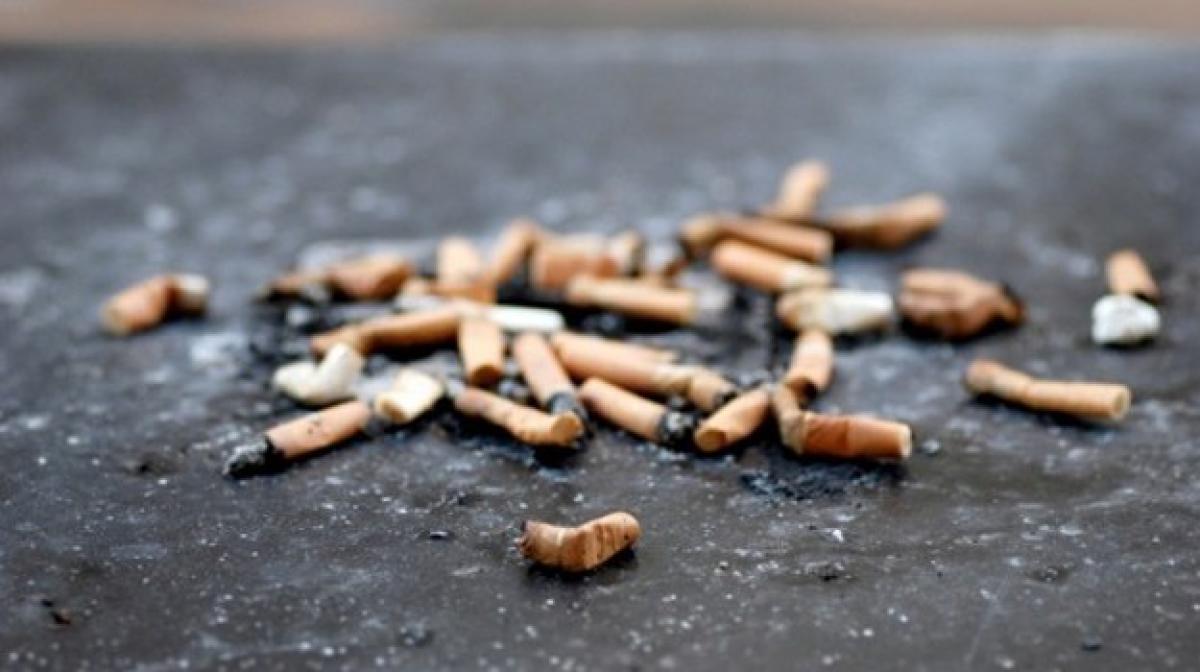Live
- Woman dies by suicide over alleged sexual harassment
- High Court directs HMDA to file status report on lake protection
- 3.5L metric tonnes of paddy to be procured in Vizianagaram
- Maha poll result may derail Congress poaching plan in State
- Motilal Oswal unveils index fund
- Adventure sports zipline, sky cycling launched at Kailasagiri
- State Tourism hopeful of darshan quota from TTD
- Poor air quality causing rise in respiratory illness
- Rythu Sadassu today to showcase TG govt’s slew of pro-farmer steps
- Weak construction demand to hit cement industry: Icra
Just In

Researchers have found that cigarette butts can be safely disposed of by sealing them up inside roads and paths, an advance that could not only solve a huge waste problem but would also be useful in reducing the urban heat island effect common in cities.
Researchers have found that cigarette butts can be safely disposed of by sealing them up inside roads and paths, an advance that could not only solve a huge waste problem but would also be useful in reducing the urban heat island effect common in cities.
Trillions of cigarette butts are produced every year worldwide, with most discarded into the environment. They take ages to break down while their toxic chemical load is released into creeks, rivers and oceans.
In the study, the researchers demonstrated that asphalt, or bitumen -- a mixed composite material commonly used to surface roads -- with cigarette butts can handle heavy traffic and also reduce thermal conductivity.
"I have been trying for many years to find sustainable and practical methods for solving the problem of cigarette butt pollution," said Abbas Mohajerani, senior lecturer at the RMIT University in Melbourne, Australia.
"Cigarette filters are designed to trap hundreds of toxic chemicals and the only ways to control these chemicals are either by effective encapsulation for the production of new lightweight aggregates or by the incorporation in fired clay bricks," added Mohajerani whose team previously demonstrated recycling cigarette butts in bricks.
In the study, published in the journal of Construction and Building Materials, the team encapsulated the cigarette butts with bitumen and paraffin wax to lock in the chemicals and prevent any leaching from the asphalt concrete.
The encapsulated cigarette butts were mixed with hot asphalt mix for making samples.
These encapsulated cigarette butts can be developed as new construction material which can be used in different applications and lightweight composite products, the researchers said.
About six trillion cigarettes are produced every year, leading to more than 1.2 million tonnes of cigarette butt waste. These figures are expected to increase by more than 50 per cent by 2025, mainly due to an increase in world population, the study revealed.
The findings can create a new construction material while ridding the environment of a huge waste problem, Mohajerani added.

© 2024 Hyderabad Media House Limited/The Hans India. All rights reserved. Powered by hocalwire.com







